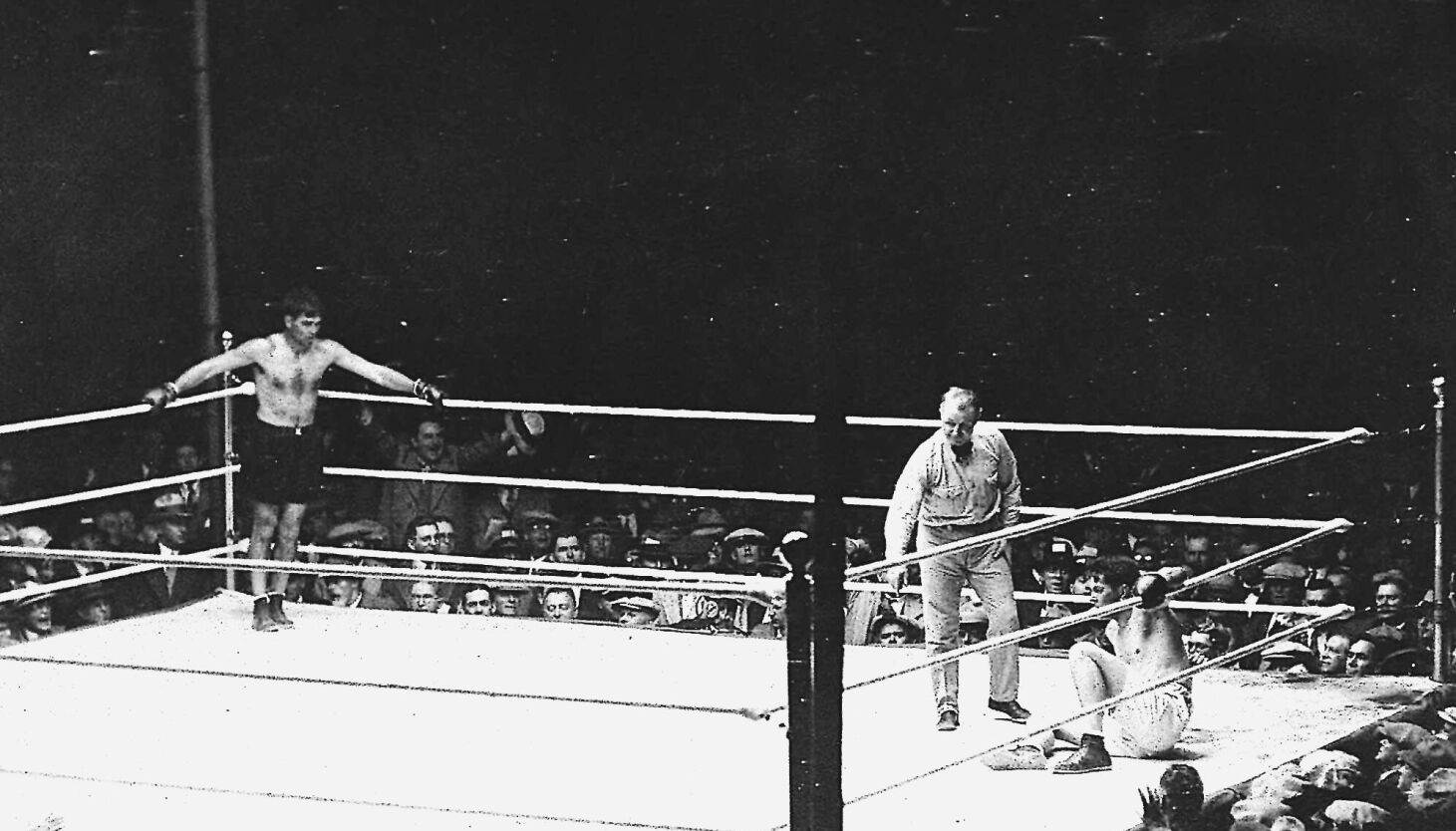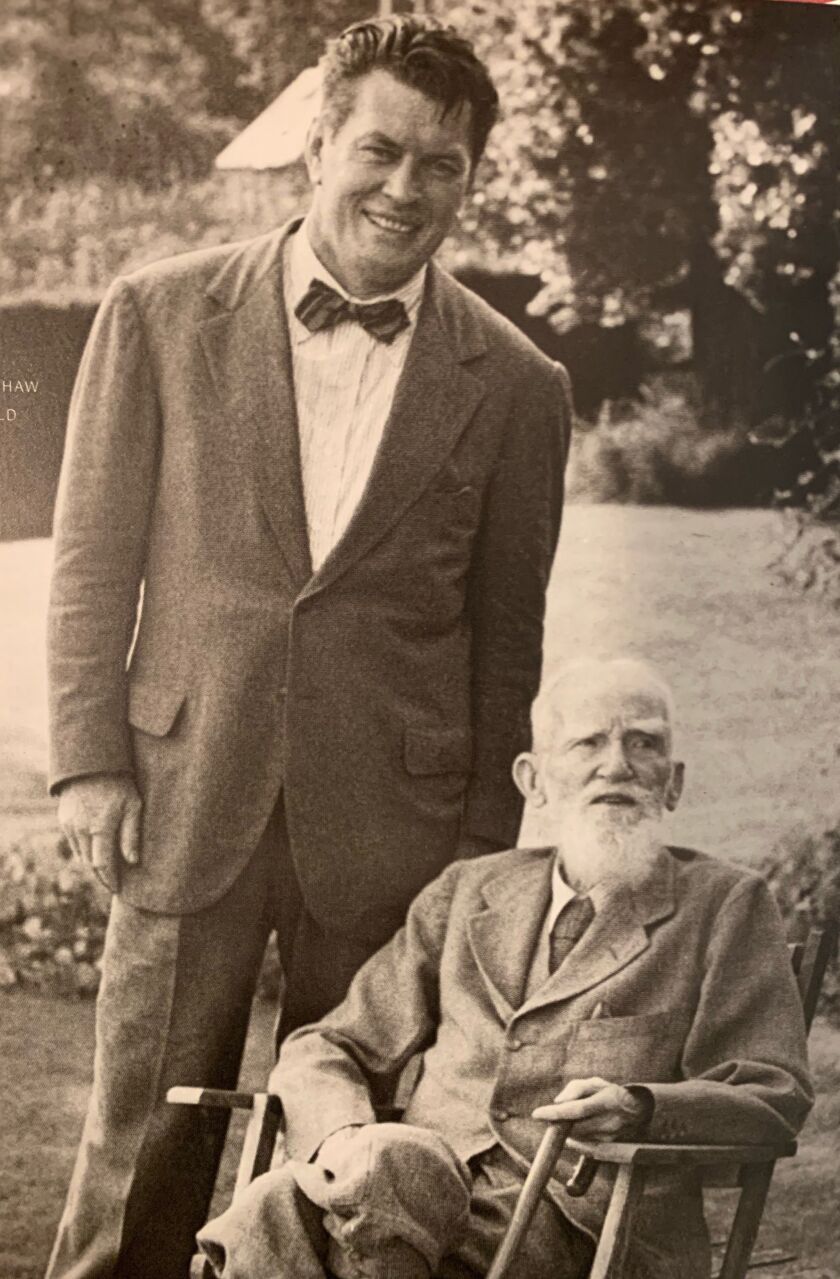



Chicago residents endlessly parse their city’s best-known aspects: pizza and hot dogs, crime and weather, the blues and the Cubs. While other significant aspects of Chicago too often are simply ignored.
Boxing, for instance. Chicago was a big boxing town. The top three heavyweight champions of the 20th century — Jack Johnson, Joe Louis and Muhammad Ali — all lived in Chicago.
Johnson was locked in Cook County Jail for violating the Mann Act — the law passed by Congress attempting to stop him from having relations with white women. Louis won his first championship at Comiskey Park. Ali fought in the Golden Gloves in Chicago, would have fought here for a title, too, but local officials cancelled the bout to punish him for being a conscientious objector to the Vietnam War.
And the boxing match that contained what many considered the greatest moment in professional boxing — if not in all athletics — the famous “Long Count” between Gene Tunney and Jack Dempsey took place at Soldier Field in 1927.
Almost a century ago. Yet Tunney’s son, Jay, still lives downtown. He is a sharp and energetic 87, and the driving force behind a new play about the improbable friendship between his father and the Irish playwright George Bernard Shaw “Shaw vs. Tunney,” by Doug Post, making its world premiere at Theatre Wit later this month.

Boxer Gene Tunney, left, and playwright George Bernard Shaw. A play about their improbable friendship, written by Doug Post, opens at the Wit Theater on Belmont Avenue this month.
Provided photo
“I was thinking of writing it myself,” explained Tunney, who had written a book, “The Prizefighter and the Playwright,” about the two men. A play seemed worth doing, so Tunney took Post’s playwriting class to work on his skills.
“Then it struck me, as I was listening to Doug: This is going to be another big hill to climb. Doug was there, an already made, professional playwright.”
Indeed he was. One of the founders of Victory Gardens Playwrights Ensemble, Post had written a number of movie screenplays and festival dramas on commission, and quickly fell under the sway of the relationship between the two famous men.
“I loved Jay’s book,” Post said. “By page two I was hooked.”
Tunney was a “scientific boxer” who pushed back against the rough culture of boxing. Asked by Chicago newsmen about his upcoming fight with Dempsey, “The Manassa Mauler,” Tunney replied archly: “If there is to be a fight, I know nothing of it. I don’t like fighting, but I do like boxing, and as far as I know this is going to be a boxing contest.”
“Dad was full of little things like that that drove newsmen in that day crazy,” his son said. “He was one of the most unpopular fighters.”
Not to Shaw, who had boxed as a young man and wrote a boxing novel, “Casual Byron’s Profession.” While in his day Shaw was among the most famous men in the world, he doesn’t resonate today the way, for instance, his contemporary, Eugene O’Neill does, except for one play, “Pygmalion,” the basis of the musical “My Fair Lady.”
Setting down to write, Post found himself having to stir up trouble in the Tunney household.
“I had to find some conflict in marriage of Gene and Polly Lauder Tunney,” Post said. “Otherwise, it would simply be a love story. In theater, the interesting thing about lovers is what keeps them apart. The interesting thing about friends is what potentially keeps them apart.”
I wondered how Tunney took to a playwright meddling in his parents’ marriage.
“Some of elements that I needed, he had to be talked into,” Post said. “It’s very very tricky, because I’m making up things for his parents to say. He allowed me to explore those things. Occasionally, he’d say, ‘No, this is a little too far’ or ‘This term would not be used.’ But generally he understood there had to be some of that in order for it to be a theatrical enterprise.”
“Dad’s life was too big an arc to put on stage,” Tunney said. “We decided to take a section and make it poignant.”
“Shaw vs. Tunney,” a three-character play, centers on the appeal of opposites.
“When the two men were together, Shaw always wanted to talk about boxing and Tunney always wanted to talk about books,” Post said. “Each of them saw in the other something of what they wanted to be, or the life they didn’t lead.”
“Shaw v. Tunney,” directed by Nick Sandys, begins previews at Theater Wit, 1229 W. Belmont, on May 25, and runs through July 8.
